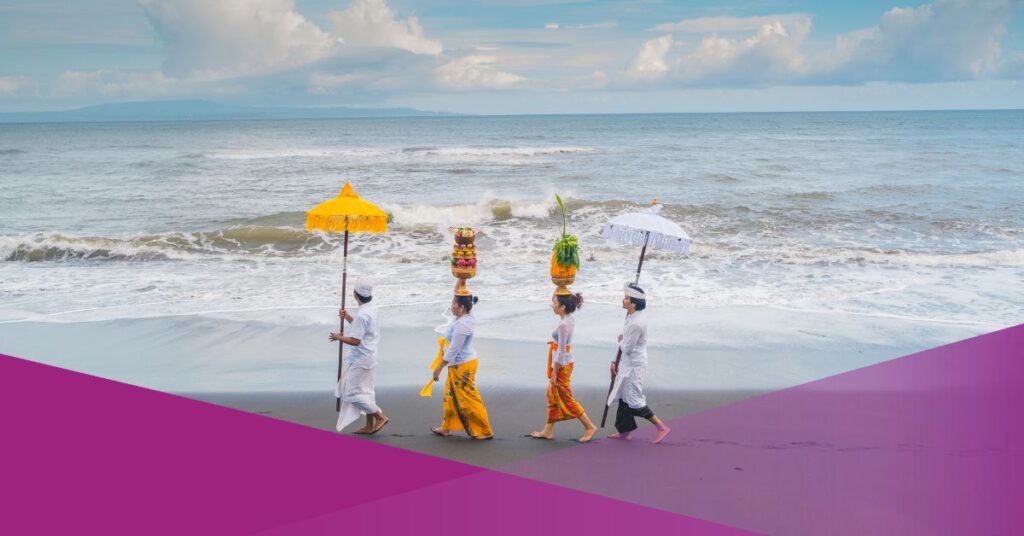Indonesia has become one of Southeast Asia’s most attractive investment destinations. With more than 270 million people, a rising middle class, and rapid digital adoption, the market is rich with opportunity.
Yet for foreign companies, the path to establishing a presence in the Indonesian Market can be complex. Legal frameworks are intricate, infrastructure gaps remain, and cultural dynamics add layers of nuance.
For international investors, success often depends on understanding these challenges early, and knowing when to rely on professional guidance.
With our partner, LMI Consultancy, this article threads all the common challenges and careful preparations to ensuring smooth compliance for your market entry in Indonesia.
10 Challenges When Starting a Business in Indonesia
-
Complex Indonesia Legal Framework
Indonesia’s regulatory system is layered and constantly evolving. From the Positive Investment List to sector-specific restrictions, foreign investors must navigate overlapping rules. Without expert advice, the risk of errors or delays in licensing can be costly.
One of the first hurdles is establishing the correct legal entity. Whether forming a limited liability company or another form of business entity, investors must ensure their business name is available, register for a Business Identification Number (NIB), and comply with sector regulations. Each step is critical to securing a legal foundation for your business in Indonesia.
-
Choosing the Right Structure for a Company in Indonesia
Options range from local companies (PT PMDN) to foreign-owned entities (PT PMA) or representative offices. Each comes with different requirements on ownership and activities. Selecting the wrong model can limit growth potential and require restructuring later.
Foreign investors must evaluate the type of business structures most suited to their goals. For instance, a foreign-owned limited liability company (PT PMA) is often the best choice for long-term investment, but it comes with higher capital requirements compared to a local PT. Understanding these differences is essential before committing resources.
-
Cultural Sensitivity and Business Practices
Indonesia’s diversity demands cultural intelligence. Missteps in communication or negotiation can harm reputations and relationships. Companies must balance global business practices with respect for local traditions and ethics.
When you start a company in Indonesia, cultural awareness goes hand in hand with regulatory compliance. Every aspect of business activities and foreign investment is influenced by local customs. A respectful approach not only builds goodwill but also strengthens long-term partnerships in this diverse market.
-
Logistical Hurdles
With over 17,000 islands, logistics and distribution remain uneven. Supply chains outside major cities are costly and complex, requiring careful planning to stay competitive.
Building a successful presence in Indonesia requires careful consideration of infrastructure gaps and distribution processes in Indonesia. Different business sectors face unique logistical challenges, and companies operating in Indonesia must adapt their supply chain strategies to navigate this archipelagic economy effectively.
-
Fierce Competition
Dynamic sectors such as e-commerce, retail, and fintech are highly competitive. Foreign companies must adapt their models to local consumer behaviour rather than relying on global templates. Standing out requires localisation, differentiation, and a deep understanding of Indonesian customers.
-
Labour Market Complexity
Managing Indonesia’s workforce requires understanding labour laws, wage policies, and contract regulations. Recruiting the right mix of local and expatriate talent can be challenging. A well-structured HR strategy, compliant contracts, and an appreciation of Indonesia’s labour culture are key to success.
-
Currency Volatility
The rupiah is sensitive to global economic shifts. For companies reliant on imports, currency fluctuations can erode margins quickly. Effective financial planning, hedging strategies, and pricing flexibility are critical to maintaining stability in this environment.
-
Environmental Compliance
Industries such as manufacturing, construction, and mining must adhere to strict environmental standards. Securing permits like AMDAL or UKL-UPL is mandatory before operations begin. Non-compliance can lead not only to fines but also reputational damage that undermines long-term growth.
-
Indonesia Tax and Financial Administration
From monthly VAT filing to corporate tax obligations, Indonesia’s tax system is complex and subject to frequent updates. Even simple steps like opening a corporate bank account can take more time than expected. Companies must ensure their financial administration aligns with local laws to avoid costly penalties.
-
Intellectual Property Protection
Counterfeiting remains a persistent issue in Indonesia. Protecting your brand and innovations means registering trademarks, patents, and copyrights with local authorities. Many foreign firms overlook this step, only to face copycats once their business gains traction.
Indonesia Immigration and Business Licensing
Investors must also consider immigration requirements. Securing the correct work permit, investor visa (KITAS), or business visa is mandatory before operations can begin. Each step demands accurate documentation and an approved local sponsor.
Registering a company itself involves multiple stages, including the Online Single Submission (OSS) system, selecting the correct licenses, and, in some cases, meeting minimum capitalisation thresholds such as the IDR 10 billion paid-up capital rule for PT PMAs.
Learn more about establish a business in Indonesia here: A Foreign Shareholder’s Guide to Company Incorporation in Indonesia
The Value of Engaging Local Expertise in Indonesia
Indonesia offers immense opportunities, but entering the market requires more than ambition. Every stage, from structuring a company to securing visas that demands precise execution.
LMI Consultancy, which has supported thousands of expatriates and business investors in Indonesia, emphasises the importance of getting the foundations right. Their team ensures compliance with licensing requirements, supports company registration through OSS, and advises on long-term operational planning.
For foreign investors, working with a trusted consultancy not only prevents delays and missteps but also provides the confidence to focus on business growth in Indonesia. In a market as dynamic as Indonesia, that expertise can be the difference between frustration and success.

































